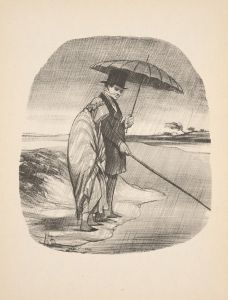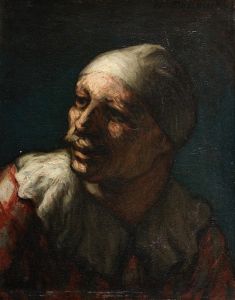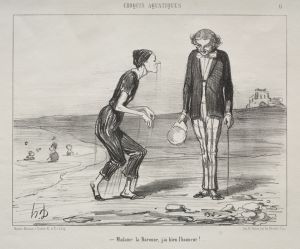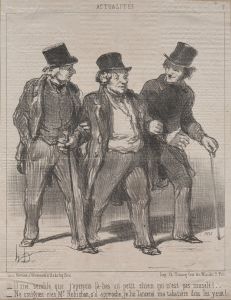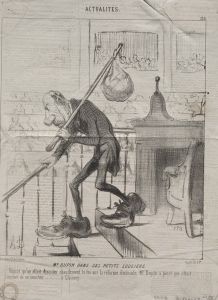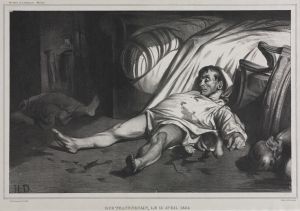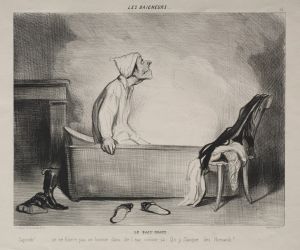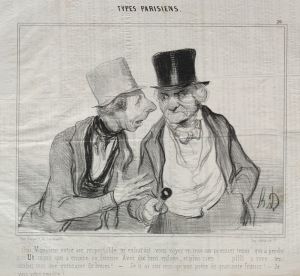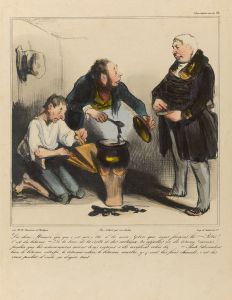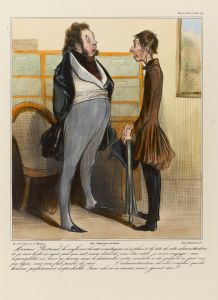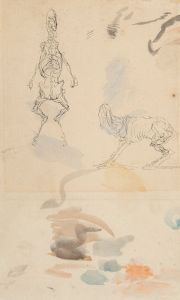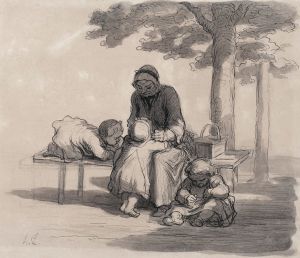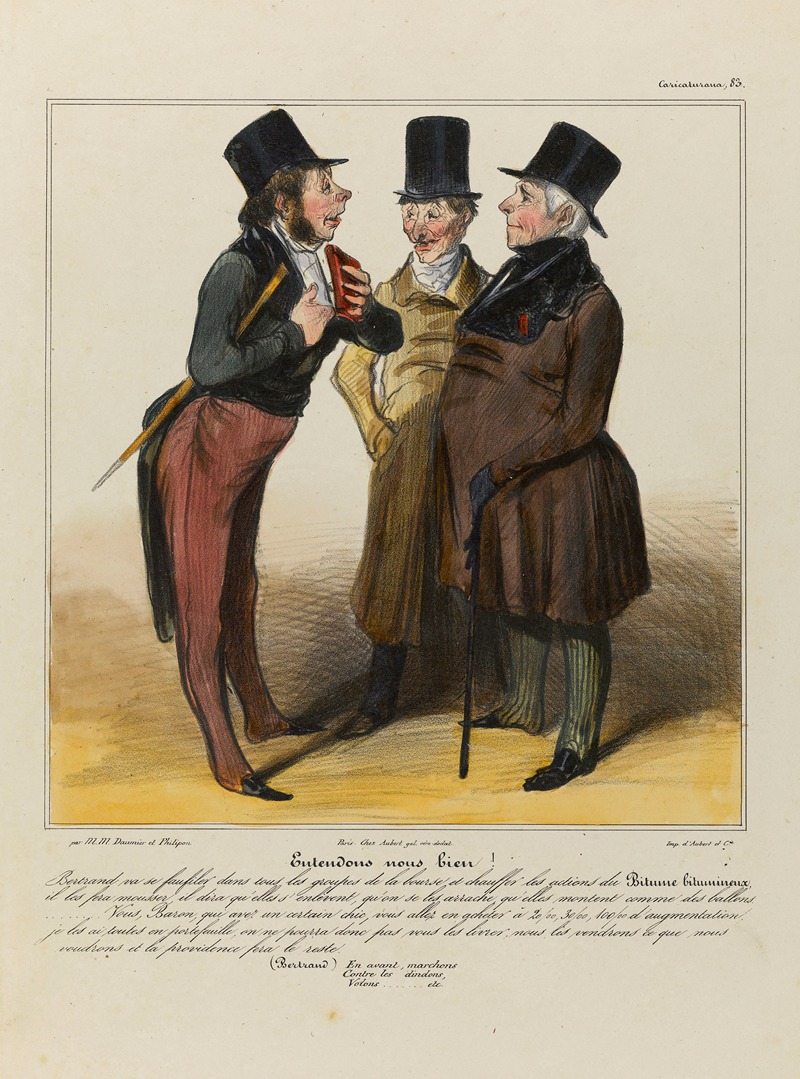
Entendons nous bien
A hand-painted replica of Honoré Daumier’s masterpiece Entendons nous bien, meticulously crafted by professional artists to capture the true essence of the original. Each piece is created with museum-quality canvas and rare mineral pigments, carefully painted by experienced artists with delicate brushstrokes and rich, layered colors to perfectly recreate the texture of the original artwork. Unlike machine-printed reproductions, this hand-painted version brings the painting to life, infused with the artist’s emotions and skill in every stroke. Whether for personal collection or home decoration, it instantly elevates the artistic atmosphere of any space.
Honoré Daumier, a prominent French artist known for his caricatures, paintings, and sculptures, created a body of work that provides a critical commentary on the social and political issues of his time. One of his works, "Entendons nous bien," reflects his keen observation and satirical approach, although specific details about this particular piece are not extensively documented.
Daumier was born in Marseille, France, in 1808 and moved to Paris with his family in 1816. He began his artistic career as a lithographer, a medium that allowed him to reach a wide audience. Daumier's work often appeared in popular publications such as "La Caricature" and "Le Charivari," where he gained fame for his sharp wit and ability to capture the essence of contemporary society. His art frequently targeted the bourgeoisie, politicians, and the legal system, highlighting the absurdities and injustices he perceived.
"Entendons nous bien" translates to "Let us understand each other well" in English, suggesting a theme of communication or perhaps miscommunication. While specific information about this piece is limited, it is consistent with Daumier's style to use such a title to critique social interactions or political discourse. His works often employed humor and exaggeration to convey deeper truths about human nature and societal structures.
Daumier's artistic style is characterized by bold lines and expressive figures, often exaggerating features to emphasize the subject's character or the situation's absurdity. His ability to capture the essence of his subjects with minimal detail is a testament to his skill as an artist and observer of human behavior. This approach is evident in his caricatures, where he could distill complex personalities and situations into a single, impactful image.
Throughout his career, Daumier produced thousands of lithographs, paintings, and sculptures. His work was not limited to satire; he also explored themes of human struggle and resilience. Paintings such as "The Third-Class Carriage" depict the harsh realities of everyday life for the lower classes, showcasing his empathy and understanding of the human condition.
Despite his prolific output and influence, Daumier did not achieve significant financial success during his lifetime. He lived modestly and continued to work until his death in 1879. Today, his work is celebrated for its artistic merit and its insightful commentary on 19th-century French society.
In summary, while specific details about "Entendons nous bien" are scarce, it can be appreciated within the broader context of Honoré Daumier's oeuvre. His work remains a vital part of art history, offering a window into the social and political landscape of his era through the lens of satire and keen observation.





